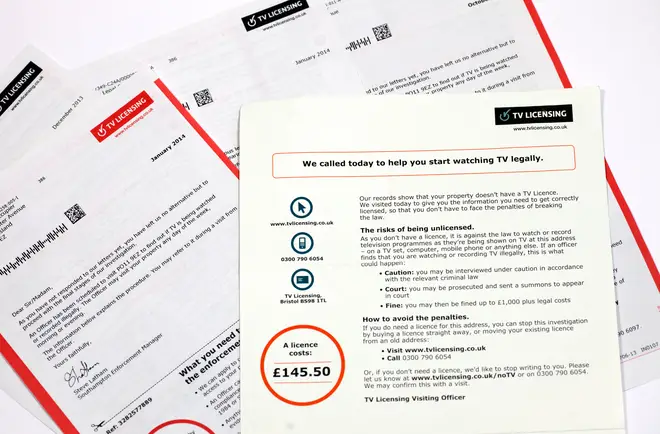
Shelagh Fogarty 1pm - 4pm
13 May 2022, 10:51

Jacob Rees-Mogg: The license fee is strangling the BBC
Jacob Rees-Mogg said the BBC has a "pretty bleak" future ahead of it if does not scrap its public licence fee.
Speaking to Nick Ferrari at Breakfast, the Brexit Minister said: "I've thought for some time that the licence fee is a comfort blanket for the BBC that is ultimately suffocating it.
"If you look, look how well Global is doing, look at Global's revenues in the last few years, look how they’ve gone up, look at Sky's revenues, look at Netflix's revenues.
"And what has happened, they've been broadly static and the licence fee takes have been slightly falling as fewer people take out licences.
"The licence fee is currently a large amount of money but it is a declining and wasting asset and the BBC should be thinking for itself about how it's more innovative and more entrepreneurial.
"If it depends on the licence fee forever, the future of the BBC is pretty bleak in my view. It should come up with its own plans."
Read more: 'We'll do better, not less': Mogg defends civil service bloodbath as 90,000 jobs face axe

On Thursday BBC director-general Tim Davie said the "stakes are very high about what kind of society we live in" referencing the future of the broadcaster's funding model.
During a media and telecoms conference, Mr Davie was asked what message he would like to offer to those reviewing the BBC's funding model, after Culture Secretary Nadine Dorries confirmed changes would be made "well ahead" of the BBC Charter renewal in 2027.
Mr Davie said: "Listen to the public. What are we? Storytellers, a democracy.
"My biggest thing is the stakes are very high about what kind of society we live in."
Mr Davie said the BBC "are not trying to beat Netflix" and said believes the licence fee "still offers great value", after admitting the broadcaster has "some choices to make".
Read more: 'Hunky dory for him, tough on tax payers': Mogg hits out at Khan 'swanning around the world'
Earlier this week, the Queen's Speech at the State Opening of Parliament included the Government's proposed Media Bill, which outlined its intention to privatise Channel 4.
Recently the broadcaster laid out its alternative plan to being privatised, with proposals which included "levelling up" so it becomes more "northern-based", with the majority of the workforce to be based outside London.
Some 300 roles are already based outside London and, under the plan, which was first presented to the Government earlier this year, this would increase to 600 by 2025.
Also during the conference, Ofcom chief executive Dame Melanie Dawes addressed plans for the media watchdog to regulate streaming platforms - which was cemented with the publication of the Government's broadcasting White Paper in April.
Under the legislation, Ofcom will have powers to draft and enforce a new video-on-demand code, aimed at setting standards for larger TV-like services such as Netflix, ITV Hub and Now TV.
Read more: Nadine Dorries confirms BBC licence fee will be frozen for next two years

Jacob Rees-Mogg quizzed on Eurovision
Dame Melanie said: "I really believe that good regulation creates a level playing field that allows the market to operate.
"It is really clear our viewing habits - all of us, mine have changed massively particularly during the pandemic - they are changing hugely, even more so when you look at younger viewers, that is driving change.
"You can see already companies are shifting towards digital content - Channel 4, for example, making real strides in making that leap."